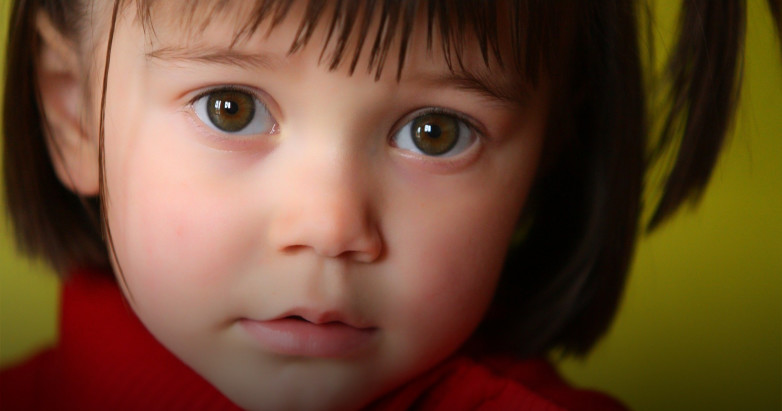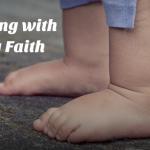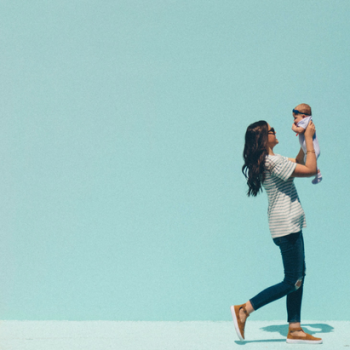“Did you always know that you wanted to be a parent?” A few weeks ago while recording an episode for our podcast Kindreds, my co-host asked. We talked at length but in short, the answer was, no.
When I was young and single, the idea of having a kid was something that seemed like an eventual, yet distant given for my life. But when the question of whether or not to parent became less abstract, I found myself growing increasingly ambivalent about the possibility.

To start, because of the privileges I enjoy, I was able to make a conscious decision about whether or not I would parent a biological child. I was not limited by infertility, relationship status, finances, or access to health care, for which I am grateful. Thanks to reliable family planning, a pregnancy was something that I could decide I wanted rather than something left to chance. As an advocate for reproductive health and rights, this is what I desire for every person.
The question for us, then, wasn’t could we have a child, but should we have a child? More than any other decision my husband and I would make, including our decision to marry, this would be irreversible not only for for us, but for another person. Was this right for our relationship? Was this right for the world?
For quite some time I had difficulty parsing out my authentic feelings about parenthood from what the conservative Christian culture had taught me to believe. Having grown up in an evangelical church I certainly got the message, mostly through implicit teachings and norms, that motherhood that was a woman’s highest calling. While I cannot recall a time when the (male) pastor specifically quoted 1 Timothy 2:15, “Women shall be saved through childbearing, the only biblical woman I ever remember my church celebrating was Mary, the mother of Jesus. The only time women were honored publicly in the congregation was on Mother’s Day (note: not a Christian holiday), and that was limited to biological mothers who parented children. If you were a woman who was not a parent, your life experience was essentially invisible in the life of the church.
What made my decision-making process more difficult was that I no longer subscribed to the belief that motherhood would fulfill me. I didn’t feel a sense of lacking because I was not a parent. I had fulfillment through work, activism, relationships, and community. Plus, I’d seen for myself how parenting can take different forms. I’d had many spiritual mothers (and a few fathers) who had guided and nurtured me at different times in my life. Was the calling to be a spiritual parent any less sacred?
My husband and I deliberated for months. In the midst of my wavering I reconnected with a colleague for dinner. I shared my confusion over whether or not to pursue parenthood, specifically my inability to articulate a solid reason that I should. Weren’t there many other ways for me to bring goodness and love into the world? Wouldn’t I be able to pursue more of them if I were not spending so much of my energy focused on raising a child? Something she shared that night helped me move out of my ambivalence and into a place of resolve.
My friend shared that her philosophy of parenting was to raise her children for the common good. Her parenting is based in community: teaching children with the awareness of their ethical responsibility to care for themselves and for others. In spite of all the messages I’d gotten from faith leaders about the importance of family and children, it was the first time I had heard a truly ethically-sound argument for how parenting could be a moral good.
It is also an incredibly weighty responsibility. The task of raising a white child in the United States is daunting. How do we teach her to be actively anti-racist in a racist world? How do we actively and effectively counter the white supremacy, Christian supremacy, and male supremacy that shape us all? After witnessing the violence and hatred of the domestic terrorism in Charlottesville over the weekend, I realize yet again that the work has to begin with me.
Our daughter is now almost three. As she learns to navigate the world around her, I recognize that she is certainly her own person with gifts and desires that are ever unfolding. My hope for her is that whatever her path may be, she will grow into a person who cares for the common good and that she will learn to live into that call in her own unique way.
Katey Zeh, M.Div is a strategist, writer, and speaker who inspires communities to create a more just, compassionate world. She has written for outlets including Huffington Post, Sojourners, Religion Dispatches, Response magazine, the Good Mother Project, the Journal for Feminist Studies in Religion, and the United Methodist News Service. She is the co-host of Kindreds, a podcast for soul sisters. Her book Women Rise Up will be published by the FAR Press in March of 2018. Find her on Twitter at @kateyzeh or on her website kateyzeh.com.
Get a free download of a Christian parenting manifesto that helps us guide children into healthy spirituality + a guide on How to Raise a Feminist Son + the most helpful parenting resources with progressive values.












